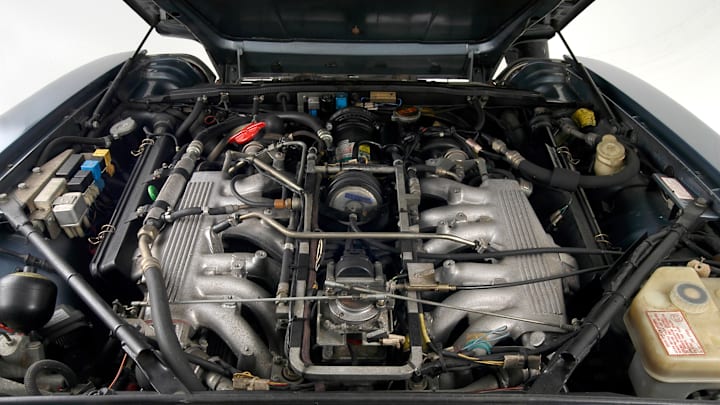What Causes an Engine to Overheat?

An overheating engine is a serious issue that can lead to significant damage and costly repairs. Understanding the common causes of engine overheating can help you take preventive measures and address the problem promptly if it occurs. Here are some of the main reasons why an engine might overheat.
The most common cause of engine overheating is a low coolant level. Coolant, or antifreeze, is a fluid that circulates through the engine to absorb and dissipate heat. If the coolant level is low, there isn’t enough fluid to absorb the heat, causing the engine temperature to rise. Regularly checking and maintaining the proper coolant level is crucial to prevent overheating.
Coolant leaks can also lead to overheating. Leaks can occur from various parts of the cooling system, such as the radiator, hoses, water pump, or head gasket. Leaks reduce the amount of coolant available to regulate the engine temperature. Identifying and fixing leaks promptly can prevent overheating and further damage to the engine.
A faulty thermostat is another common cause of overheating. The thermostat regulates the flow of coolant between the engine and the radiator. If the thermostat is stuck closed, it prevents coolant from circulating through the engine, leading to overheating. Conversely, if it’s stuck open, the engine may take longer to reach the optimal operating temperature. Replacing a faulty thermostat can resolve this issue.
Radiator problems can also cause engine overheating. The radiator is responsible for dissipating heat from the coolant. If the radiator is clogged or has a build-up of debris, it can’t effectively cool the coolant, leading to overheating. Regularly flushing the radiator and ensuring it’s clean can prevent such problems. Additionally, radiator fans help cool the radiator, and if the fans malfunction, it can result in overheating.
The water pump is crucial for circulating coolant through the engine and radiator. If the water pump fails, coolant can’t flow properly, causing the engine to overheat. Signs of a failing water pump include coolant leaks, a whining noise, or a loose pulley. Replacing a faulty water pump is necessary to restore proper coolant circulation.
Blocked or broken hoses can restrict coolant flow and lead to overheating. Hoses carry coolant between the engine, radiator, and other components of the cooling system. If a hose is blocked, cracked, or broken, it can restrict coolant flow and lead to overheating. Regularly inspecting hoses and replacing any that are damaged can prevent this issue.
Engine oil plays a role in cooling the engine as well as lubricating it. Low oil levels or old, dirty oil can reduce the engine’s ability to cool itself, leading to overheating. Regular oil changes and maintaining proper oil levels are essential for preventing overheating.
A blown head gasket is a serious issue that can cause engine overheating. The head gasket seals the engine block and cylinder head, preventing coolant and oil from mixing. A blown head gasket can cause coolant to leak into the engine oil or cylinders, leading to overheating. Symptoms of a blown head gasket include white smoke from the exhaust, milky oil, and loss of coolant. This is a serious issue that requires immediate attention and repair.
External factors such as towing heavy loads, driving in hot weather, or climbing steep hills can put extra stress on the engine, increasing the risk of overheating. Using the vehicle within its recommended limits and taking breaks during long drives can help manage the engine temperature.
In conclusion, engine overheating can be caused by various factors, including low coolant levels, coolant leaks, faulty thermostats, radiator problems, water pump failure, blocked hoses, engine oil issues, head gasket failure, and external factors. Regular maintenance and inspections can help identify and address potential issues before they lead to overheating. If your engine does overheat, it’s crucial to stop driving immediately and seek professional assistance to prevent severe damage. Understanding the causes of engine overheating and taking preventive measures can ensure your vehicle runs smoothly and efficiently.